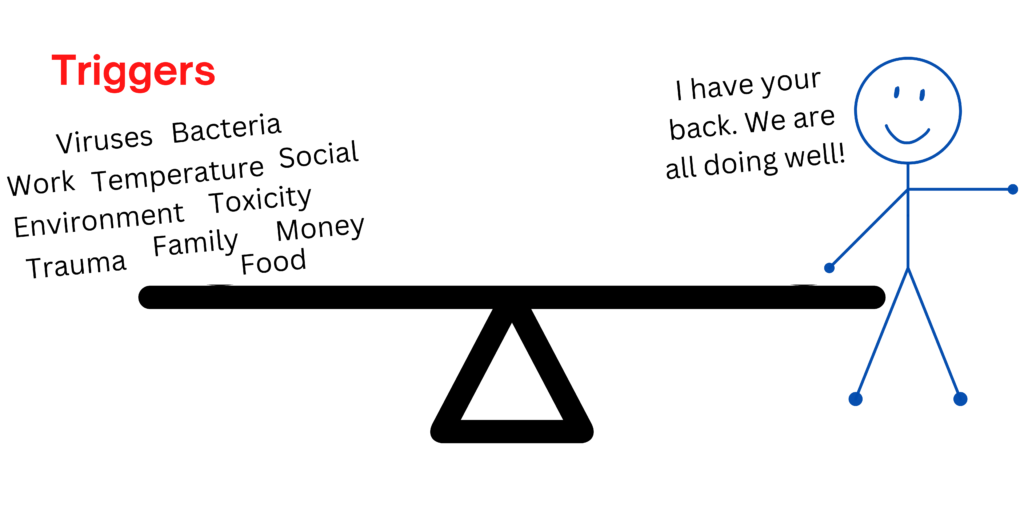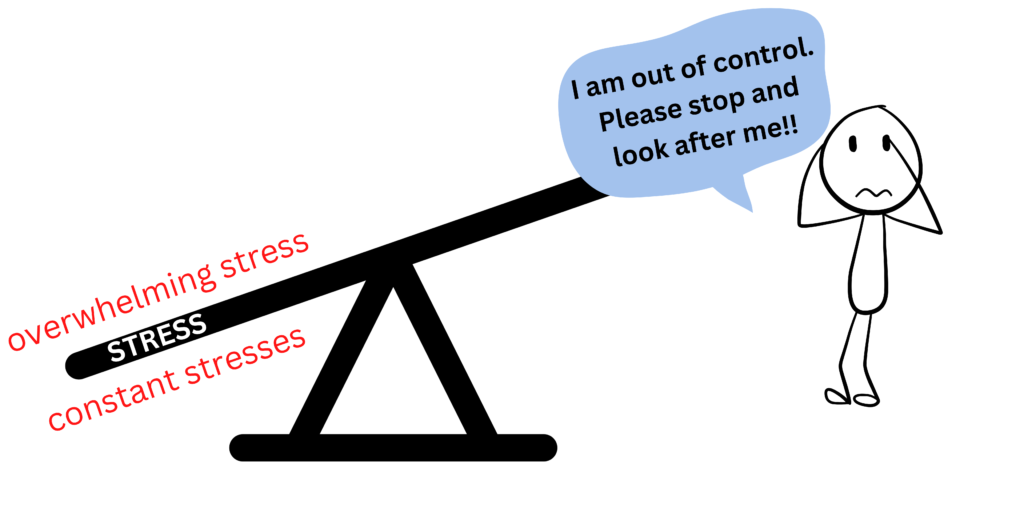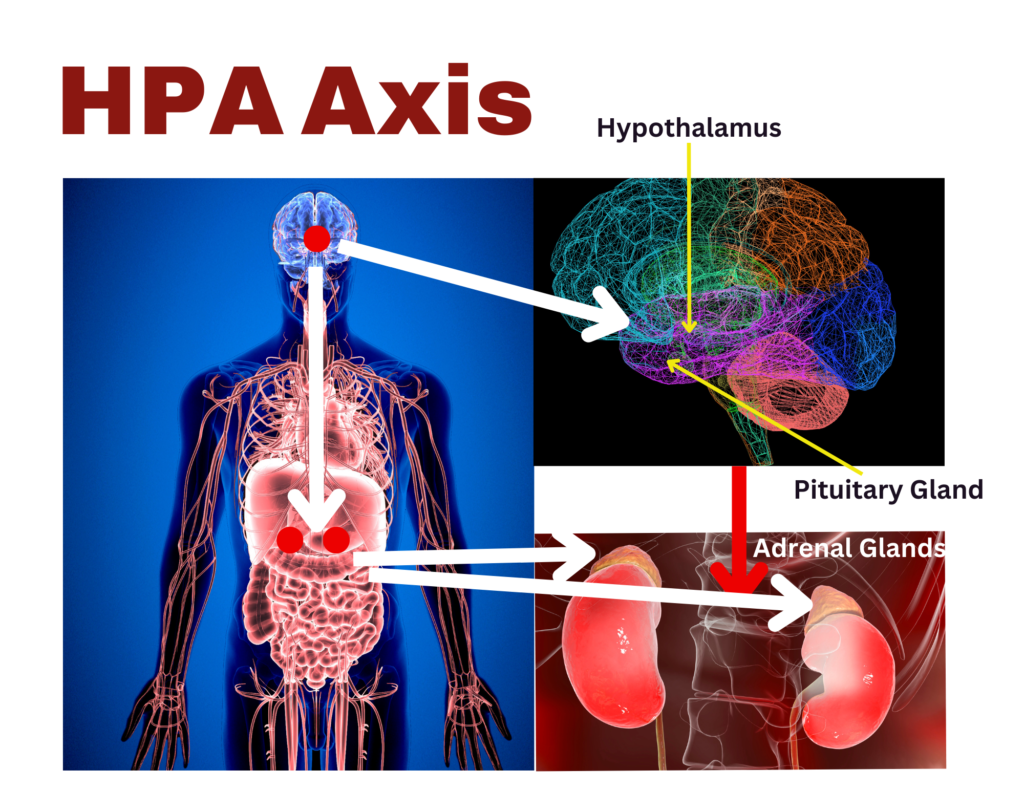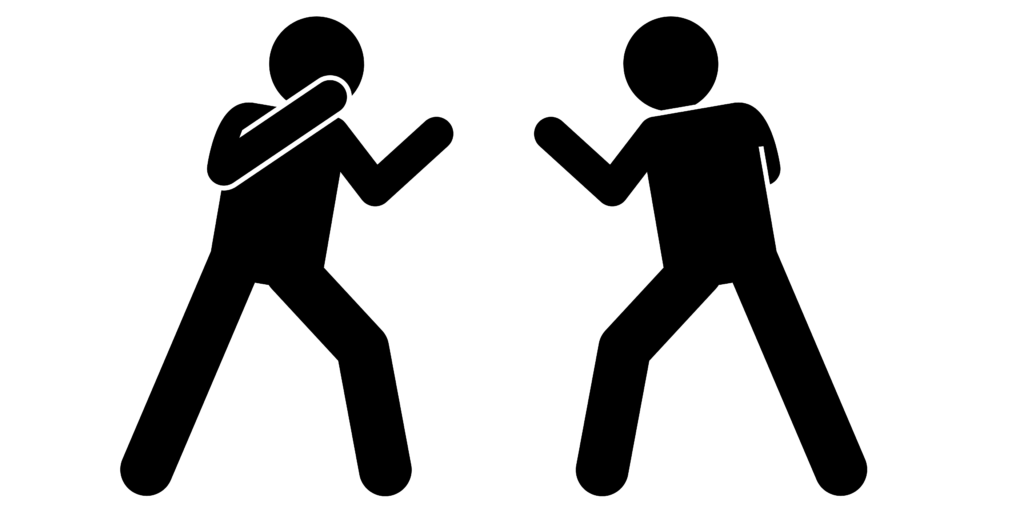Stress happens when your body becomes out of balance. You could say it comes out of homeostasis. What does it mean to say that my body being out of balance? Well, your body is a fantastic machine. It’s an incredible machine! And it is constantly, without you really being aware of it, monitoring and maintaining your internal workings and keeping them constant and stable.
Triggers
We are constantly bombarded with triggers (something our body senses) which have the ability to push us out of balance. But if these triggers are not overwhelming, our body can compensate for them, deal with them, and bring us back into balance (homeostasis) without us really noticing much.

Overwhelming Triggers
The problem arises when the triggers are overwhelming to your body. Most of the time there are two different ways which this can happen:
1. The load of the trigger is way too much for the body to be able to keep it in check. For example, it could be:
- A messy and/or very emotional divorce
- The lost of someone close to you
- Eating an enormous amount of bad food
- Being surrounded by many people with transmittable infections
- Living through a very traumatic experience
- Bankruptcy
- Travelling through a very polluted town
- And many more…
2. The trigger(s) are chronic which means they are constant into your life…
- Everyday living with toxic relationships
- Living in a town with high pollution
- Having physically and emotionally demanding toxic work environments
- Dealing with money issues everyday
- Dealing with demands that are overwhelming you on a daily basis such as too much work or never being able to finish something

What is the mechanism of stress?
We know that there is a trigger, one that our body can deal with, or one that is overwhelming and/or constant.
Our body senses through our wonderful nervous system that there is a threat to our well-being and/or survival. Therefore, it gets into gear because survival is very important to the body as is homeostasis.
The hypothalamus (an area of your brain) gets the signal that something is afoot. Right away it sends a signal (through hormone) to the pituitary (which is situated in your brain) . The pituitary will produce another hormone to send a signal to the adrenal glands (situated on top of your kidneys).

This is called the HPA axis-of-stress and it is really useful to us as long as it works well and as long as we don’t overwhelm it.
So what happens after the adrenal glands have been triggered?
The adrenal glands will secrete some cortisol, adrenaline and noradrenaline to respond to the stress. So what do they do? They prepare you to run and to fight.
Run

Fight

Our bodies were designed a long time ago but they still work the same.
So, what do we need to run and/or fight?
We need lots of energy going to our muscles and brain. And what gives us energy? Glucose. Therefore, the secretion of cortisol and adrenaline will increase your blood flow and respiratory rate to bring more glucose and oxygen to our muscles for us to have more power to fight and run away. Which is a very good thing because it is all about survival.
Once the stress is gone, the same hormones will talk to our axis of stress and signal that the threat is gone and to shut it down. If our body is working well and there are no problems with our stress genes, everything will return to normal. And there are no big issues to follow.
The problem arises when the stress is so traumatic, or it is constant, or our stress genes are not working properly. Consequently, our axis of stress never shuts down.
Too Much Cortisol
Although cortisol is really helpful when needed, it can also be very harmful when it is secreted too much.
Cortisol has the possibility of increasing our inflammation process. Inflammation is a good mechanism in our body, but in the proper amount. Too much inflammation will cause stress to our body and ultimately can cause severe issues. So as the inflammation increases, stress increases, and cortisol increases.
Cortisol can interfere with the proper functioning of our microbiota (the little organisms living in our body which is so beneficial to us especially when balanced properly) Once our microbiota is not functioning optimally a whole chain of events can follow including:
- Decrease of our neurotransmitters like serotonin
- Decrease in the secretion of vitamins
- The absorption of nutrients can be compromised due to damage to our intestinal wall
- Our immune system over-reacts
- And more
So here we go again – more stress produced on our body, more cortisol and inflammation, and more damage done. And the detrimental cycle continues.
What can you do?
- Becoming aware of the stressors in your life and surroundings is very important.
- Once you are aware, reflect on the techniques and changes which you could incorporate into your life to decrease the effect of these triggers.
- Consult with a professional that can help you. Although this can be accomplished alone, it is always very helpful to consult with a credentialed professional.




